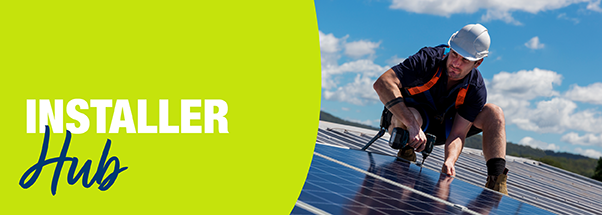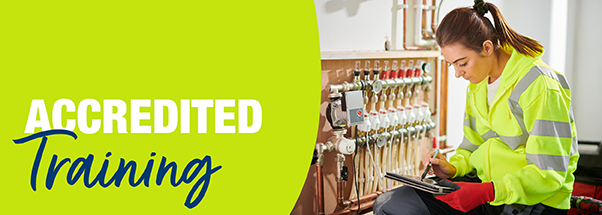 Free delivery on orders over £75 ex VAT
Free delivery on orders over £75 ex VAT Free click & collect from branches nationwide
Free click & collect from branches nationwideWhat Qualifications Do You Need To Install Heat Pumps?
Heat Pumps
Published date: 13 August 2024 / Read time: 5 mins
HOW AIR SOURCE HEAT PUMPS WORK?
Sales of air source heat pumps have surged among homeowners in the last few years. With the UK government’s potential plans to ban gas boilers in all new homes from 2025, and an aim to phase out gas boiler installations on all properties by 2035, this surge results from the UK’s ambitious target to reach carbon net zero by 2050.
Yet, with such an increase in demand for heat pumps comes the need for professionals to hold the correct air source heat pump qualifications. So, if you’re planning on offering such services, you may be wondering ‘what qualifications do I need to install heat pumps?’

Here, the Energy Efficiency team at City Plumbing explores the preferred qualification required for both air source and ground source heat pump installations.
Air Source Heat Pump Qualifications
Air source heat pumps are the most commonly requested training courses and qualifications. Two of the best places to start your search include:
MCS Certification: MCS accreditation, that is the Microgeneration Certification Scheme, is a renowned certification that’s recognised throughout the industry and considered to be the go-to choice by many employers and indeed homeowners looking for qualified professionals.
LCL Awards: LCL Awards offer regulated qualifications through the RQF, Regulated Qualifications Framework (RQF) qualification.
Other potential reputable qualifications for those installing air source heat pumps that are worth looking at include:
- Level 2 or 3 NVQ / SVQ Installation and Maintenance Qualification - covering plumbing, heating and ventilation, gas or oil
- CCN1 Core Domestic Gas Safety Certificate - With CENWAT status to cover heating systems installations
- OFTEC Oil Certificate
- HETAS Certificate - Covering wet systems
- CPS Registration - For plumbing systems
- MCS Registration - For heat pumps or solar thermal systems
- Energy Efficiency Qualification - Via a 17024 UKAS accredited body
- Certificate of Competence- Installation of unvented hot water systems
- WRAS - Water Regulations Certificate
- Health & Safety - Independent Accredited Health and Safety qualification that covers CoSHH, working at heights, and manual handling
What Do Heat Pump Installation Courses Cover?
Though the subject matter will vary depending on the provider you choose, heat pump installation topics for domestic and small commercial properties will tend to cover:
- How heat pump systems work
- How to install heat pumps
- Best places to install heat pumps
- Health and safety risk assessments
- Design considerations
- Installation and testing tips
Ground Source Heat Pump Installer Qualifications
When it comes to acquiring installation qualifications for ground source heat pumps, you can look at adding to your heat pump installer qualifications. For many installers this qualification further helps complete your training and become fully competent when offering both services to customers and employers.
To attend most ground source heat pump training courses, it’s usually a requirement to have one of the qualifications mentioned above. The most common requests here tend to include the NVQ or SVQ certification, the CCB1 certificate, the OFTEC oil certificate, the HETAS certificate, and the WRAS regulations certificate.
What Do Ground Source Heat Pump Installation Courses Cover?
Some of the areas covered on standard ground source heat pump courses include common topics such as:
- Ground source heat pump principle including circuit design, component sizing and operation
- Heat pump regulations and guidance
- Heat pump collector types
- Heat distribution
- Pre-installation requirements and installation materials and methods
- Good testing practice
- Servicing and fault-finding methods

What Are the Benefits of Being Heat Pump Qualified?
Being able to display your heat pump qualification instantly shows that you’re knowledgeable in this subject matter. It also plays a huge part in reassuring customers when they look to hire a professional with the right skills to carry out the job to work in and around their homes and properties.
Having the right qualifications to install heat pumps can ultimately help you grow your client base. Alongside customer recommendations, you can list your qualification status in your marketing materials, highlighting your expertise over those without such accreditations.
Furthermore, by gaining a heat pump installer qualification, you will instantly boost your knowledge, thus enhancing your confidence levels, and become an assured installer.
If you're looking for further help on choosing the best training and courses, contact our Renewables Team at City Plumbing. Experts in the latest energy-efficient technologies, we're perfectly placed to help homes and businesses make the smooth transition to renewable technology.



